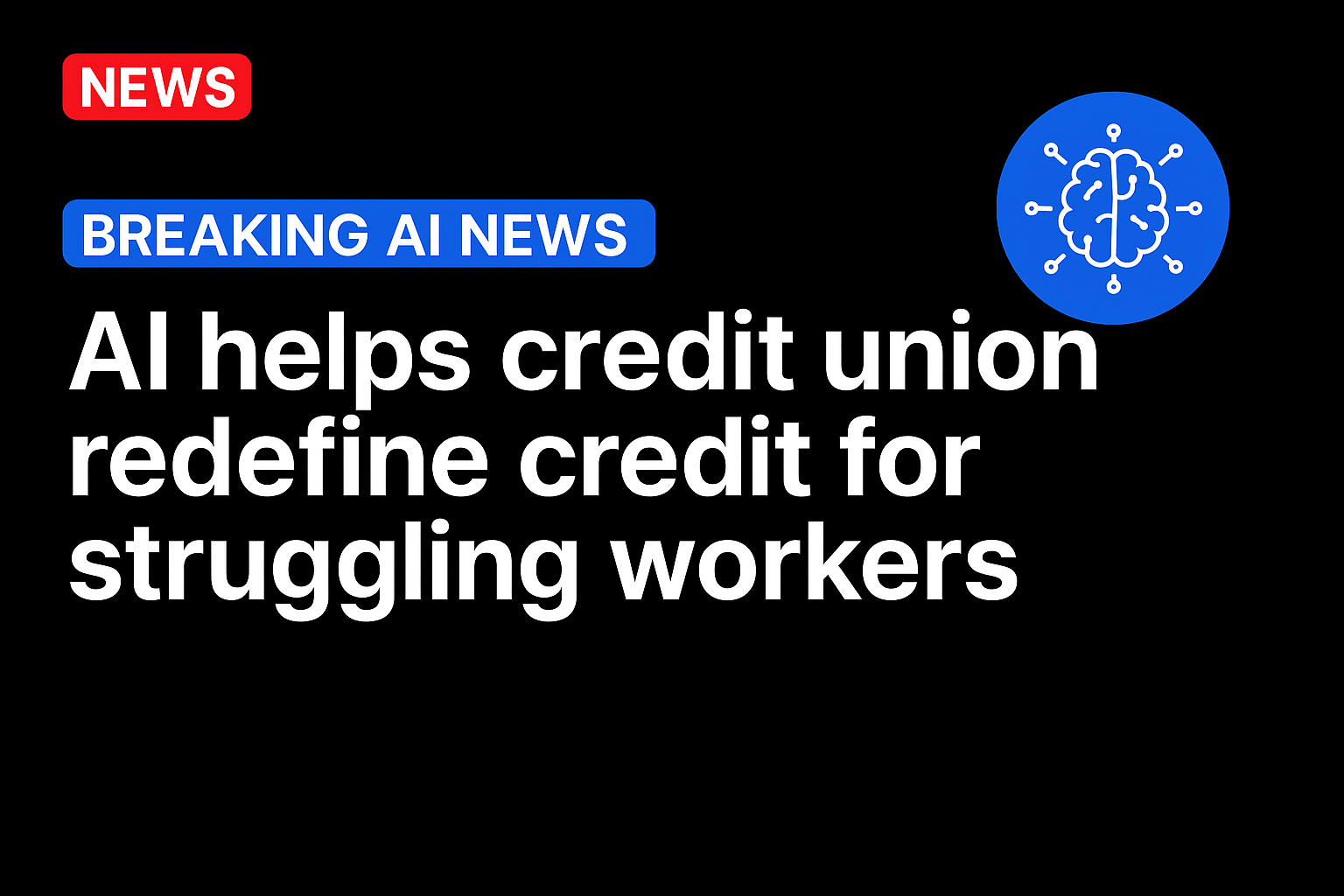For millions of working families, financial stability is a fragile balancing act. The paycheck arrives, the bills are paid, and the cycle begins again, until an unexpected expense tips the scales. For these households, credit isn’t a luxury. It’s a lifeline.
Southern Chautauqua Federal Credit Union (SCFCU), based in Western New York, has been building a mission around these members. Through a new partnership with FinTech Salus, the institution is using artificial intelligence (AI) to promote financial inclusion — helping the region’s ALICE (Asset Limited, Income Constrained, Employed) households improve their financial realities and access credit safely and sustainably.
Redefining the ALICE Demographic
The term ALICE was originated by the United Way, explained John Felton, CEO of Southern Chautauqua FCU in an interview with PYMNTS. Felton noted that roughly 42% of U.S. households fall under the ALICE definition — families that live paycheck to paycheck and are often forced to make difficult trade-offs.
“ALICE families are under more stress now than they have been in quite some time,” he said. “Many times, money runs out before the next paycheck comes. These are people who work hard but have to decide between putting gas in the tank or food on the table.”
Empathy, he said, underpins the credit union’s mission of “doing well by doing good” as it serves 20,000 members across Western New York.
Finding Grit in the Data
Where traditional lending models often rely on a static three-digit credit score, Felton believes that approach fails to capture the full story. “That score tells you about their past,” he said. “It doesn’t predict their future. It doesn’t explain why they went through those struggles, and you can’t tell from a traditional credit report if somebody has grit.”
Grit, in Felton’s view, is the ability to recover — to “figure it out” and keep moving forward. AI, he said, is allowing his team to quantify that resilience.
The partnership leverages Salus’ Sentinel platform, an analytics engine that uses advanced data modeling to identify positive lending patterns and expand affordable credit access. The system goes beyond credit scores to analyze cash-flow trends, repayment patterns and household priorities.
“This is our first dive into using additional data points,” Felton said. While lending officers may traditionally look at fewer than 30 factors, he told PYMNTS that “we want AI to read the credit report, recognize those individuals that had something happen — but they recovered. We want to look at trend analysis, what happened, and how they reacted. It’s not how many times you get knocked down, it’s how you get up.”
Cash-Flow Intelligence and Human Touch
For now, Southern Chautauqua’s use of AI is assistive, not autonomous. Loan officers still meet with members and review their household finances, often using their mobile banking app as a conversation starter. “We ask them to open up their home banking app and let us review their cash flow,” Felton said. “We explain we’re doing this because we want to find a way to help them so we can grant the loan.”
AI will soon help flag conversation points — identifying patterns such as recurring overdraft fees or the prioritization of certain bills (like always paying the cell phone before the car note). Those insights, Felton said, “help us understand financial values… and as fast as AI is going, we can take that next step — maybe using those insights to generate real solutions.”
From Insight to Inclusion
Over time, said Felton, “the goal is to identify those families that do have light at the end of the tunnel and provide a pathway,” Felton said. “We’ll take bite-sized chunks of their high-interest credit card debt and refinance part of it at a fair rate. If they stay current, we take another portion later. Eventually we can eliminate that credit card debt.”
That structured, relationship-based approach helps members avoid payday loans and predatory products, which Felton views as “unaffordable flexibility.” The ultimate aim, he said, is to replace debt dependency with financial confidence.
Managing Risk While Expanding Access
From a portfolio perspective, the same data that supports inclusion also strengthens risk management. “It starts with members that have checking accounts with us,” Felton said. “We’ll be able to predict stress sooner, which allows the credit union to reach out sooner — to provide solutions before the bottom falls out.”
To ensure oversight and governance as the model evolves, Southern Chautauqua has dedicated internal leadership. “We have a point person — our CIO — who has a passion for artificial intelligence,” Felton said.
As for the Salus partnership, he said “we can’t work with six FinTechs at once, so we chose one that matched our values and understood the importance of ALICE families.” The collaboration with Salus remains the core focus, though the credit union also partners with Harness on debit-card data analytics and community reward programs.
Debit activity, Felton added, is a valuable indicator of financial stress and spending behavior, showing whether members rely on credit for essentials or maintain balance through their checking accounts.
A Model for Mission-Driven Growth
Felton’s perspective extends beyond technology. “Credit union sustainability lives in ALICE families,” he said. “These are the people that need credit unions the most. I see a lot of credit unions going after Gen Y, Gen Z, Gen X — but all of those gens are in ALICE. Go after ALICE, and all the generations will come to you.”
Source: https://www.pymnts.com/

